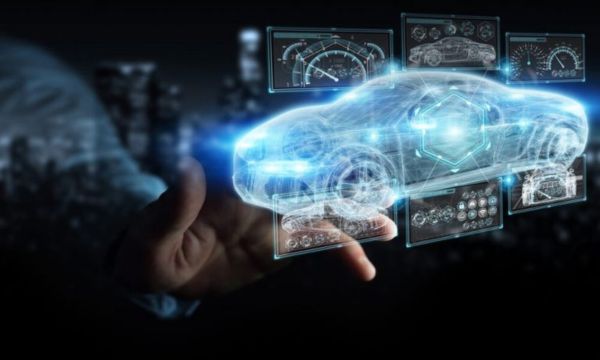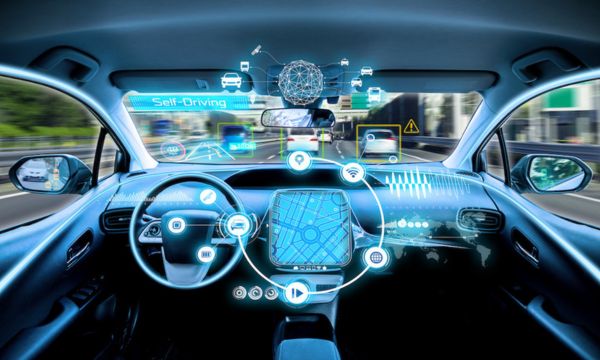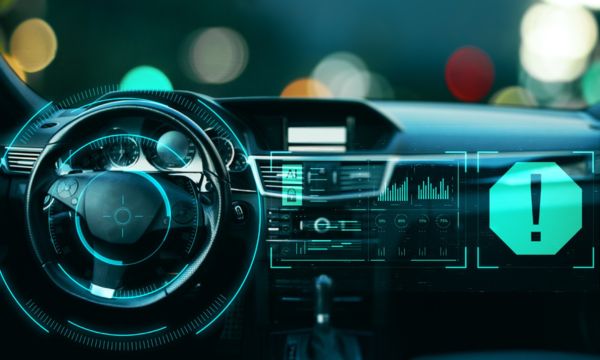The Transformative Role of AI in Automotive Maintenance
In recent years, artificial intelligence (AI) has become a revolutionary force in many areas, and the automotive industry is no exception.
Since artificial intelligence has been added to car care, much has changed in the way cars are tracked, diagnosed, and maintained.
This change in thinking not only makes the maintenance process more efficient but also ensures that cars are safer, more reliable, larger, and last longer.
This article explores the many ways artificial intelligence is changing car maintenance. It discusses its uses, pros and cons, and the future of this evolving relationship.
1. Application of AI in Car Maintenance:
- Predictive maintenance: Predictive maintenance is one of the main ways artificial intelligence is being used in automotive maintenance. AI algorithms look at vast amounts of data from many sensors, such as engine performance data, temperature data, and the car’s usage patterns, to spot problems before they get worse. This proactive approach helps prevent vehicle breakdowns, reduce downtime and ultimately extend the life of your vehicle.
- Troubleshooting and Debugging: Diagnostic tools that use artificial intelligence can quickly identify and analyze problems with vehicle components. Artificial intelligence algorithms can detect problems by analyzing data from built-in sensors and diagnostic tools. This allows technicians to carry out repairs accurately and quickly. This not only speeds up maintenance but also reduces the time and money required for trial-and-error repairs.
- Virtual Assistance and Troubleshooting: Artificial intelligence virtual assistants built into cars can help drivers and workers in real-time. These assistants can read error codes, give people suggestions on how to fix the problem, and even show them how to make simple repairs. These virtual assistants improve the user experience and give people the tools they need to solve small problems without the need for professional help, using natural language processing and machine learning.
- Maintenance of autonomous vehicles: As the automotive industry shifts toward autonomous vehicles, artificial intelligence is a crucial part of keeping these complex systems running. Self-diagnostic capabilities, automated repair processes, and continuous tracking ensure that autonomous vehicles remain in good condition and reduce the risk of problems that could compromise safety.
2. Benefits of AI in Car Maintenance:
- More efficient: Artificial intelligence maintenance tools make vehicle repairs more efficient. When predictive maintenance is combined with real-time diagnostics, technicians can fix problems before they get worse, meaning larger changes don’t have to be made as often. This saves time so that car owners do not have to wait too long.
- Cost savings: AI-based maintenance can save vehicle owners and service companies money because it is proactive and can predict problems before they happen. Identifying potential problems early can reduce maintenance costs and extend the overall life of vehicle parts, meaning they need to be replaced less often.
- Better security: Artificial intelligence helps improve vehicle safety by monitoring key components and letting the driver or service facility know when a problem may arise. This proactive approach reduces the risk of accidents caused by mechanical failure, protecting the safety of passengers and others on the road.
- Better user experience: Using artificial intelligence in car maintenance can lead to a better overall experience for car owners. Virtual assistants, easy-to-use diagnostic tools, and personalized maintenance recommendations make the relationship between driver and car smoother and more engaging.
3. Challenges and Considerations:
- Data security and privacy: The increasing use of artificial intelligence in vehicle maintenance has raised concerns about data protection and security. The amount of data sent and generated by connected vehicles is growing, which can be dangerous if not properly protected. Keep private information safe and prevent people from obtaining it without permission and using it in inappropriate ways.
- Technical complexity: When AI is used in vehicle maintenance, it adds new technical challenges that can only be managed and solved by experienced professionals. Service personnel and technicians must learn how to use and understand AI-powered diagnostic tools. This makes regular maintenance more complex.
- To unite things: Since there are no standard procedures for using AI in car repairs, it is difficult for different models and manufacturers to work together. There is a need to develop industry-wide guidelines to ensure that the different automotive ecosystems can work and communicate with each other without any problems.
- Thoughts on Ethics: When AI is applied in self-driving cars and their maintenance, it causes social problems, especially when the AI system has to make important decisions. The automotive industry must discuss who is responsible, who is to blame, and the ethical implications of AI-driven decisions about vehicle safety and care.
4. The Future Trajectory of AI in Car Maintenance:
- AI algorithm progress: As AI systems continue to improve, predictive maintenance and diagnostics will become more accurate and useful. Machine learning models will learn better from different data sets. This allows problems to be identified more accurately and maintenance plans to work better.
- Integration with IoT and Connectivity: Artificial intelligence combined with the Internet of Things (IoT) and better connectivity will ensure that vehicle maintenance systems work better. Real-time data sharing between cars, manufacturers, and repair shops will help people make better decisions and take preventive maintenance measures.
- Collaborate and set standards: The widespread adoption of artificial intelligence in the automotive maintenance field requires the entire industry to work together to establish standard practices. Working together, it becomes possible to create a common framework that ensures AI applications work well with different vehicle systems and helps create a unified approach to vehicle maintenance.
- Ethical rules and principles: As AI becomes more common in vehicle maintenance, ethical frameworks and rules can be developed to address ethical issues that arise with autonomous vehicles and AI-driven decision-making. To ensure that car companies can use AI responsibly and openly, there must be clear rules.

AI-in-Automotive-Maintenance (Source – Google)
Conclusion
Artificial intelligence is changing the way cars are maintained, making it possible to become more efficient, save money, and make cars safer like never before.
Although there are issues such as data protection, technical issues, and ethical issues that need to be resolved, the development of artificial intelligence in the field of automotive repair is moving in the right direction.
As technology continues to evolve, the automotive industry must work together to set standards and develop ethical guidelines to unleash the full potential of artificial intelligence to power the cars of the future.
FAQs
1. What does “predictive maintenance” mean in terms of artificial intelligence and car maintenance?
Predictive maintenance uses artificial intelligence algorithms to look at data from various car sensors and guess what problems might arise before they get worse.
This proactive approach helps prevent vehicle breakdowns, reduce downtime, and extend its lifespan.
2. What role does artificial intelligence play in diagnosing and finding car problems?
By analyzing data from onboard sensors and diagnostic tools, AI-powered diagnostic systems can quickly identify and pinpoint problems with automotive parts.
This detailed study can help technicians figure out why a problem has occurred, speeding up the maintenance process and saving time and money.
3. How can a virtual assistant take better care of your car?
Artificial intelligence virtual assistants built into cars can help drivers and workers in real-time. They explain error codes, offer troubleshooting suggestions, and guide users through basic repairs.
This improves the overall user experience and gives people the confidence to solve small problems on their own.
4. What role does artificial intelligence play in the maintenance of autonomous vehicles?
As the automotive industry shifts toward autonomous vehicles, artificial intelligence is a crucial part of keeping these complex systems running.
Self-diagnostic capabilities, automated repair processes, and continuous tracking ensure that autonomous vehicles remain in good condition, reducing the risk of problems.
5. What are the key benefits of using artificial intelligence to repair cars?
Some of the benefits include increased efficiency through predictive maintenance, lower costs through early detection and resolution of problems, increased safety through continuous monitoring, and a better user experience through virtual assistants and personalized maintenance recommendations.
6. What problems can arise when applying artificial intelligence to car repairs?
There are issues such as concerns about data privacy and security, complex technical issues that require skilled labor, a lack of standardization that makes it difficult for devices to work together, and ethical concerns about the use of artificial intelligence in making vehicle maintenance and safety decisions.
 Enhancing Safety: AI-Driven Collision Avoidance
Enhancing Safety: AI-Driven Collision Avoidance
As technology continues to change, artificial intelligence (AI) is becoming increasingly important in many areas. One very […]
More Understanding AI in Autonomous Vehicles
Understanding AI in Autonomous Vehicles
Self-driving cars, also known as self-driving cars, are a major technological advancement that relies heavily on artificial […]
More Revolutionizing Driving: AI Integration in Cars
Revolutionizing Driving: AI Integration in Cars
The automotive industry is undergoing a major transformation as artificial intelligence (AI) is applied to cars. As […]
More